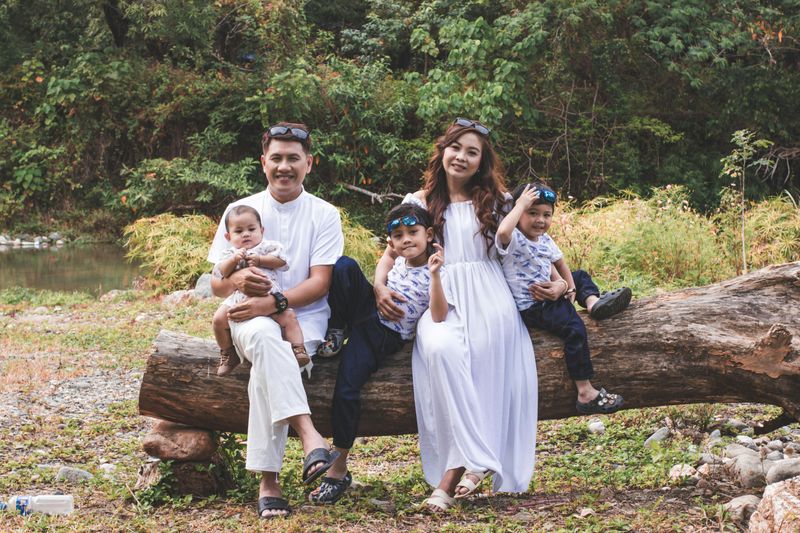20 Childhood Lessons We Grew Up Believing—Until Life Proved Them Wrong

Some lessons we carried from childhood felt as solid as bedrock—until real life poked holes in them. Adulthood didn’t just add nuance; it flipped a few truths upside down and shook others like a snow globe.
The result is messy, funny, and surprisingly freeing. If you’re ready to retire outdated rules and upgrade your operating system, this list is your permission slip.
1. You Need to Go to College to Be Successful

Degrees can help, but success has taken on many new shapes. In a world obsessed with outcomes, skill-based paths in tech, trades, and entrepreneurship are unlocking doors once guarded by diplomas.
Bootcamps, certificates, apprenticeships, and portfolios speak louder than four-year tuition bills, especially when paired with grit and networks. The proof is everywhere—from indie developers to sales pros, from welders to creators.
College still offers community and structure, yet it’s no longer the single escalator to prosperity. Debt can weigh down early careers, and some fields simply don’t require a degree to thrive. Employers increasingly test what you can do rather than where you sat. It’s a shift from pedigree to performance.
Choose with intention, not pressure. Map the job market, calculate ROI, and build skills that compound. Success has more than one staircase.
2. Strangers Are Dangerous, But Family Is Safe

Safety lessons often focused on unfamiliar faces, ignoring the complexities of real risk. Statistics show most harm to children comes from people they already know, making the old warning incomplete. Trust should be built on behavior and boundaries, not bloodlines or familiarity. Teaching kids to listen to their gut and to speak up matters more than blanket labels.
Modern safety talks include consent, privacy, and digital awareness, not just “don’t talk to strangers.” Caregivers can model healthy boundaries and admit when something feels off, even with relatives. It’s okay to leave, say no to hugs, and prioritize comfort over politeness. Empowerment is preventative.
Communities protect when they normalize reporting concerns without shame. Believe disclosures, document patterns, and seek professional guidance. True safety is relational, not traditional. Nuance beats nostalgia every time.
3. Talking About Money Is Rude

Silence keeps people underpaid and uninformed. When we avoid discussing salaries, debt, and investing, the ones who benefit are systems that thrive on secrecy. Sharing ranges, benefits, and negotiation strategies helps everyone climb together. Financial literacy spreads when conversations are normal, not taboo.
Transparency fosters equity—especially for those historically excluded from wealth-building tools. Colleagues who compare offers can correct pay gaps faster than policies alone. Families who talk budgets raise kids with less shame around spending and saving. Money talk doesn’t have to be bragging; it can be collaborative and practical.
Start small: ask about fees, compare rates, practice negotiation with friends. Create a culture where questions are welcomed, not judged. The goal isn’t to flaunt—it’s to grow. Rudeness is pretending fairness happens without sunlight.
4. You Must Stay in a Job Even If You’re Miserable

Endurance used to be marketed as loyalty, even when it eroded well-being. Burnout taught us that chronic stress is a cost paid in health, relationships, and creativity. The market now rewards strategic mobility—lateral moves, sabbaticals, and career pivots build resilience and fresh skill sets. Leaving isn’t failure; it’s fit-finding.
Managers value outcomes, not martyrdom. When roles stunt growth or violate values, it’s rational to exit. Document achievements, gather references, and design a runway before you leap. Negotiating scope or schedule can also salvage a role—choices exist between “stay” and “quit.”
Career capital compounds when you protect your bandwidth. Prioritize environments that invest in you back. Miserable doesn’t make you noble; it makes you depleted. Your best work shows up where your nervous system can exhale.
5. Marriage Is the Ultimate Life Goal

Partnership can be beautiful, but it’s not the finish line of adulthood. Many people cultivate rich lives through friendships, chosen families, and purpose-led projects. Fulfillment looks diverse: solo travel, deep community involvement, creative pursuits, or co-ops that feel like home. Wholeness isn’t a ring—it’s alignment.
When marriage is treated as mandatory, people end up forcing timelines and overlooking compatibility. There’s freedom in dating intentionally and opting out gracefully. Legal bonds can protect assets and rights, yet emotional safety comes from mutual respect and shared values. The goal is flourishing, not status.
Celebrate relationships of all kinds: platonic partnerships, queer constellations, and long-term singlehood. Design a life that supports your mental and financial health. Happiness expands when it’s chosen, not prescribed. Your story is valid without a wedding hashtag.
6. You Can’t Follow Your Passion and Make a Living

Passion without strategy can sputter, but the internet rewrote the playbook. Micro-audiences, creator tools, and niche markets empower artists, educators, gamers, and craftspeople to monetize skills once deemed “impractical.” Distribution is democratized; gatekeepers lost their monopoly. A small, loyal community can sustain a meaningful livelihood.
That said, passion becomes a career when paired with consistency, pricing, and audience understanding. Treat it like a business: test offers, track metrics, and diversify income streams. Protect joy by setting boundaries—burnout makes creativity brittle. Sustainable doesn’t mean viral; it means repeatable.
Learn the unsexy parts: contracts, taxes, and marketing fundamentals. Build systems before scale. Passion is fuel; strategy is the engine. Together, they take you farther than either alone.
7. Crying Means You’re Weak

Tears are not surrender—they’re signals. Emotions carry data, telling us what matters and where boundaries are frayed. Suppressing them often leaks out later as anxiety or rage. Expressed responsibly, crying clears the fog and reconnects us to ourselves and others.
Emotional literacy transforms teams, families, and leadership. Naming feelings reduces their power to hijack behavior. Therapists and coaches encourage regulated expression—crying in safe contexts, not weaponized displays. It’s strength to feel without drowning, to pause without shutting down.
Normalize tissues in meeting rooms and apologies when we snap. Model self-soothing and check-ins before decisions. The bravest people you know have likely cried privately and kept going. Resilience isn’t dry-eyed; it’s integrated.
8. Respect Should Always Be Given to Elders—No Matter What

Age deserves consideration, but automatic reverence can excuse harm. Power dynamics matter, and wisdom isn’t guaranteed by birthdays alone. Healthy relationships rely on mutual respect, accountability, and consent. Younger voices carry insights elders may miss, especially in rapidly changing worlds.
Challenging harmful behavior isn’t disrespect; it’s care for the community. Boundaries protect everyone, including elders who benefit from honest feedback. Listening both ways turns hierarchy into dialogue. Tradition evolves when participation is invited, not demanded.
Practice respectful dissent—use clear examples, shared goals, and curiosity. Offer alternatives rather than just critique. When respect is earned, it deepens; when coerced, it fractures. Dignity grows in spaces where everyone is human first.
9. You Have to Eat Everything on Your Plate

Clean-plate culture taught scarcity, not satiety. Many of us learned to ignore fullness cues and feel guilt for leaving bites behind. That mindset can encourage overeating and disconnect us from our bodies’ wisdom. Food is not a moral test—it’s nourishment and pleasure.
Intuitive eating reframes the meal: listen, taste, and stop when satisfied. Leftovers are not failure; they’re future convenience. Parents can serve variety, offer structure, and let kids decide how much to eat. Trust builds healthier relationships than pressure.
Respect hunger’s ebb and flow throughout the day. Notice how different foods make you feel. The goal isn’t a spotless plate; it’s attunement. Your body keeps the better scorecard than childhood rules ever did.
10. Money Buys Happiness

Cash reduces stress up to a point by covering essentials and options. Beyond stability, the returns diminish, and meaning takes the wheel. Experiences, relationships, and autonomy consistently beat luxury for lasting satisfaction. Wealth without time or health often feels hollow.
Invest in things that buy freedom: flexibility, rest, and learning. Spend on community and moments you’ll remember, not status props that need polishing. Financial buffers matter, but happiness is a team sport with purpose and connection. Chasing digits can become a treadmill.
Define “enough,” then design life around it. Align spending with values, not comparison. The happiest budgets reflect intention, not impulse. Money is a tool—joy is the project.
11. You Must Own a Home to Be Successful

Homeownership once signaled stability, but markets aren’t the same. Maintenance costs, taxes, and interest can outpace gains, especially in overheated areas. Renting buys flexibility, liquidity, and time to invest elsewhere. Success is a balanced portfolio, not a white picket fence.
For some, ownership is great—forced savings, fixed payments, and control. For others, it’s a golden handcuff that limits career moves. Run the numbers: price-to-rent ratios, opportunity costs, and your timeline. Housing should serve your life, not dictate it.
Consider house hacking, REITs, or co-ops if real estate appeals without the full burden. Negotiate rent strategically and protect your emergency fund. The best address is one that supports your goals. Bragging rights don’t pay repair bills.
12. Hard Work Always Pays Off

Effort matters, but it doesn’t operate in a vacuum. Access, timing, and luck tilt the playing field more than motivational posters admit. Privilege opens doors that hustle alone can’t kick down. Recognizing this doesn’t diminish work ethic—it clarifies strategy.
Smart effort targets leverage: mentorships, networks, and compounding skills. Advocate for structural change while building personal resilience. Track outcomes, not just hours, and rest like it’s part of the plan. Grinding without direction is just friction.
Share ladders when you climb. Sponsor others, publish playbooks, and vote for policies that widen opportunity. Meritocracy becomes real only when inputs are fair. Until then, work hard and design for luck.
13. Never Question Authority

Unchecked power breeds mistakes and abuse. History’s worst chapters were written by people who followed orders without examining them. Questioning isn’t rebellion for its own sake; it’s quality control for society. Good leaders invite scrutiny because it strengthens outcomes.
Ask for rationale, request data, and propose alternatives. Civility isn’t silence—it’s respectful challenge. Whistleblowers and auditors protect institutions we rely on daily. Fear-based obedience erodes trust faster than tough questions ever will.
Teach kids to ask “why” and adults to admit “I was wrong.” Systems become antifragile when feedback loops stay open. Authority earns legitimacy when it can explain itself. Democracy is a conversation, not a command.
14. Stay in Your Lane and Don’t Make Waves

Comfort rarely creates progress. Movements, innovations, and safer workplaces exist because someone raised a hand and said, “This isn’t working.” Speaking up can be risky, yet silence costs more over time. Even small ripples can change the current.
Strategic advocacy beats random outrage. Gather allies, frame problems with evidence, and suggest workable solutions. Choose timing wisely and document your efforts. Courage paired with craft multiplies impact.
Your lane is where your values live, not where others park you. When in doubt, ask what future-you will thank you for. History remembers the wave-makers more kindly than the bystanders. Stand up kindly—and firmly.
15. You’ll Understand Everything When You’re Older

Age adds perspective, not omniscience. Some puzzles remain beautifully unsolved: love’s timing, grief’s rhythms, and why printers jam before deadlines. Adulthood is less a manual and more a series of iterative drafts. Wisdom learns to live with questions.
Curiosity ages better than certainty. Ask better questions, refine hypotheses, and keep updating beliefs. Mentors help, but so does admitting confusion out loud. Community makes the ambiguity softer around the edges.
Measure progress by compassion and adaptability, not flawless answers. Stay teachable, keep notes, and laugh at the cosmic irony. Mystery isn’t failure—it’s the human condition. We grow by navigating, not knowing.
16. You Need to Have Kids to Have a ‘Complete’ Life

Parenthood can be profound, but completeness isn’t a headcount. Many people build legacies through mentorship, art, activism, or entrepreneurship. Child-free lives can overflow with love, spontaneity, and service. Wholeness is a mosaic, not a mold.
Social pressure often confuses expectation with destiny. Medical realities, finances, or simple preference shape choices that deserve respect. Communities thrive when we support diverse household structures. Less judgment, more casseroles.
If you want kids, may your village be strong. If you don’t, may your days be rich and unrushed. Either way, pursue meaning, not appeasement. Completion is an inside job.
17. Everything Happens for a Reason

Some events are senseless, and pretending otherwise can gaslight pain. Meaning can be made after the fact, but that’s different from destiny scripting every blow. Randomness, negligence, and injustice explain more than fate sometimes. Compassion starts with acknowledging harm without platitudes.
Post-traumatic growth is real, yet it doesn’t require silver-lining the storm. We can honor resilience while demanding accountability. Support looks like presence, resources, and systems that prevent repeats. Healing isn’t a moral test to pass.
Allow space for grief and anger. Ask what’s needed, not what lesson was “meant” to be learned. When we stop forcing reasons, we make room for real repair. Meaning is chosen, not assigned.
18. You Should Always Put Others First

Self-sacrifice sounds noble until it empties the tank. Chronic overgiving leads to resentment, burnout, and blurry boundaries. Caring for yourself expands what you can offer sustainably. Oxygen masks exist for a reason.
Healthy generosity has edges—clear no’s make your yes’s honest. Calendars and budgets are values documents; protect them fiercely. Small acts of maintenance—sleep, exercise, solitude—compound into reliability. People who love you want you well, not depleted.
Practice reciprocal care: ask for help, trade favors, and set expectations upfront. When everyone contributes at capacity, communities flourish. Martyrdom is drama disguised as devotion. Choose stewardship over self-erasure.
19. Success Looks the Same for Everyone

Uniform dreams made for tidy report cards, not fulfilled adults. Today’s success spans remote cabins, bustling startups, part-time art careers, and quiet parenthood by design. Metrics differ: free time, impact, health, or creative expression. Comparison is a thief with good PR.
Define your scoreboard before you play. If you want spacious mornings, optimize for them. If you crave challenge, choose stretch roles with support. Trade-offs are honest; regret thrives in autopilot.
Write a personal annual review with your values as headings. Celebrate experiments, not just outcomes. Success that fits you feels suspiciously like peace. That’s the win worth chasing.
20. You Only Get One Shot at Life

Reinvention is delightfully human. People pivot careers in midlife, rebuild after heartbreaks, and change cities, styles, and beliefs. Identity is a living document, not a final draft. Many shots exist if you keep stepping to the line.
Failure becomes compost—messy, rich, and necessary for growth. Short feedback loops speed the next attempt. Micro-resets count: new routines, fresh circles, different tools. Courage is iterative.
Treat life like a series of seasons. Ask what this chapter needs, not what the entire book demands. Permission granted to edit as you go. The plot twists are the point.

Comments
Loading…